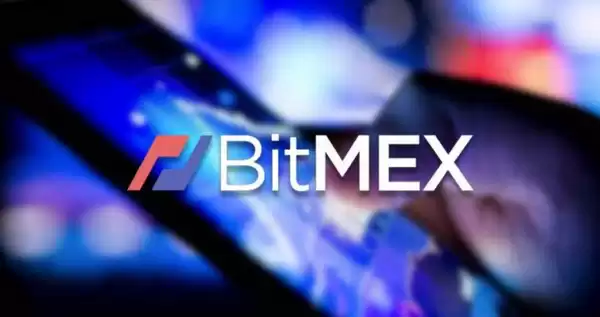-
 bitcoin
bitcoin $87959.907984 USD
1.34% -
 ethereum
ethereum $2920.497338 USD
3.04% -
 tether
tether $0.999775 USD
0.00% -
 xrp
xrp $2.237324 USD
8.12% -
 bnb
bnb $860.243768 USD
0.90% -
 solana
solana $138.089498 USD
5.43% -
 usd-coin
usd-coin $0.999807 USD
0.01% -
 tron
tron $0.272801 USD
-1.53% -
 dogecoin
dogecoin $0.150904 USD
2.96% -
 cardano
cardano $0.421635 USD
1.97% -
 hyperliquid
hyperliquid $32.152445 USD
2.23% -
 bitcoin-cash
bitcoin-cash $533.301069 USD
-1.94% -
 chainlink
chainlink $12.953417 USD
2.68% -
 unus-sed-leo
unus-sed-leo $9.535951 USD
0.73% -
 zcash
zcash $521.483386 USD
-2.87%
BitMEX leverage trading rules
BitMEX's leverage trading rules, including maximum leverage limits, margin requirements, and liquidation procedures, aim to protect traders and maintain market stability.
Nov 11, 2024 at 06:24 am

BitMEX, a leading cryptocurrency derivatives exchange, offers leverage trading, allowing users to amplify their trading positions and potentially increase their profits. However, leverage trading also carries inherent risks and requires a thorough understanding of its rules and mechanisms.
What is Leverage Trading?Leverage trading is a technique that allows traders to utilize borrowed funds, known as leverage, to enter larger positions than they would ordinarily be able to with their available capital. The specific amount of leverage available to traders varies depending on the platform and the assets being traded.
Leverage Trading Rules on BitMEXBitMEX offers a comprehensive set of leverage trading rules that aim to protect both the exchange and its users. These rules cover various aspects of leverage trading, including the following:
1. Maximum Leverage Limits- BitMEX imposes maximum leverage limits that vary based on the traded cryptocurrencies and the instruments used.
- For perpetual contracts, the leverage limit is typically 100x, while for futures contracts, the limit is usually lower.
- Traders are not permitted to exceed these predetermined leverage limits.
- Margin refers to the minimum amount of capital that a trader must hold in their account to maintain open positions with leverage.
- BitMEX sets specific margin requirements for each traded instrument.
- Maintaining sufficient margin is crucial to avoid liquidation, which occurs when the trader's account balance falls below a certain threshold.
- If a trader's account balance falls below the required margin, the exchange will initiate a liquidation process.
- During liquidation, the trader's open positions will be forcibly closed at market prices, potentially resulting in substantial losses.
- BitMEX employs a "fair price" mechanism that determines the execution price for liquidations, aiming to minimize market manipulation.
- BitMEX also enforces position limits to prevent market manipulation and excessive concentration of orders.
- Position limits vary depending on the traded cryptocurrencies and the instruments used.
- Exceeding position limits may result in the exchange canceling or adjusting the trader's orders.
- BitMEX offers several risk management tools to help traders manage their exposure to leverage trading risks.
- These tools include stop-loss orders, auto-deleveraging, and the ability to manually reduce leverage levels.
- Utilizing these tools effectively can mitigate potential losses and enhance trading performance.
- BitMEX may occasionally restrict or suspend margin trading during periods of high market volatility or other extraordinary events.
- Such restrictions are implemented to safeguard the stability and integrity of the platform.
- BitMEX explicitly emphasizes the inherent risks associated with leverage trading and encourages traders to fully understand the risks before engaging in this type of trading.
- The exchange clearly outlines the potential for significant losses and recommends that only experienced and knowledgeable traders utilize leverage trading.
Leverage trading on BitMEX is subject to a comprehensive set of rules designed to protect both the exchange and its users. These rules govern aspects such as maximum leverage limits, margin requirements, liquidation procedures, position limits, risk management tools, margin trading availability, and risk disclosure. Understanding and adhering to these rules is essential for successful and responsible leverage trading on BitMEX.
Disclaimer:info@kdj.com
The information provided is not trading advice. kdj.com does not assume any responsibility for any investments made based on the information provided in this article. Cryptocurrencies are highly volatile and it is highly recommended that you invest with caution after thorough research!
If you believe that the content used on this website infringes your copyright, please contact us immediately (info@kdj.com) and we will delete it promptly.
- UAE Investor Secures Major Stake in Trump-Linked Crypto Firm Amidst Shifting Geopolitical Tides
- 2026-02-02 07:10:01
- Pepe Meme Coin: Navigating the Hype, Price Predictions, and Future Outlook in 2026 and Beyond
- 2026-02-02 07:05:01
- Blockchain Gaming's Quiet Revolution: Unpacking Latest Trends and Industry Insights Amidst Market Shifts
- 2026-02-02 06:30:01
- IPO Genie, Tokenization, and YouTubers: The Big Apple's Next Big Bet on Democratized Wealth
- 2026-02-02 06:40:02
- Aptos in a Bind: Downtrend Deepens, But a Brief Relief Bounce Looms Before the Next Plunge
- 2026-02-02 07:00:01
- Pi Network, ATL, and Community: Navigating the Currents of a Mobile-First Crypto Movement
- 2026-02-02 07:00:01
Related knowledge

How to close a crypto contract position manually or automatically?
Feb 01,2026 at 11:19pm
Manual Position Closure Process1. Log into the trading platform where the contract is active and navigate to the 'Positions' or 'Open Orders' tab. 2. ...

How to understand the impact of Bitcoin ETFs on crypto contracts?
Feb 01,2026 at 04:19pm
Bitcoin ETFs and Market Liquidity1. Bitcoin ETFs introduce institutional capital directly into the spot market, increasing order book depth and reduci...

How to trade DeFi contracts during the current liquidity surge?
Feb 01,2026 at 07:00am
Understanding Liquidity Dynamics in DeFi Protocols1. Liquidity surges in DeFi are often triggered by coordinated capital inflows from yield farming in...

How to use social trading to copy crypto contract experts?
Feb 02,2026 at 07:40am
Understanding Social Trading Platforms1. Social trading platforms integrate real-time market data with user interaction features, enabling traders to ...

How to trade micro-cap crypto contracts with high growth potential?
Feb 01,2026 at 02:20pm
Understanding Micro-Cap Crypto Contracts1. Micro-cap crypto contracts refer to derivative instruments tied to tokens with market capitalizations under...

How to optimize your workspace for professional crypto contract trading?
Feb 01,2026 at 08:20pm
Hardware Infrastructure Requirements1. High-frequency crypto contract trading demands ultra-low latency execution. A dedicated workstation with a mini...

How to close a crypto contract position manually or automatically?
Feb 01,2026 at 11:19pm
Manual Position Closure Process1. Log into the trading platform where the contract is active and navigate to the 'Positions' or 'Open Orders' tab. 2. ...

How to understand the impact of Bitcoin ETFs on crypto contracts?
Feb 01,2026 at 04:19pm
Bitcoin ETFs and Market Liquidity1. Bitcoin ETFs introduce institutional capital directly into the spot market, increasing order book depth and reduci...

How to trade DeFi contracts during the current liquidity surge?
Feb 01,2026 at 07:00am
Understanding Liquidity Dynamics in DeFi Protocols1. Liquidity surges in DeFi are often triggered by coordinated capital inflows from yield farming in...

How to use social trading to copy crypto contract experts?
Feb 02,2026 at 07:40am
Understanding Social Trading Platforms1. Social trading platforms integrate real-time market data with user interaction features, enabling traders to ...

How to trade micro-cap crypto contracts with high growth potential?
Feb 01,2026 at 02:20pm
Understanding Micro-Cap Crypto Contracts1. Micro-cap crypto contracts refer to derivative instruments tied to tokens with market capitalizations under...

How to optimize your workspace for professional crypto contract trading?
Feb 01,2026 at 08:20pm
Hardware Infrastructure Requirements1. High-frequency crypto contract trading demands ultra-low latency execution. A dedicated workstation with a mini...
See all articles










































































